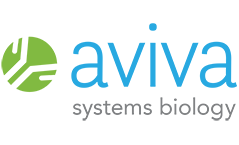Introduction to Cell Markers
The ability to identify and characterize molecules or proteins expressed within cells is vital for biological and medical research. These markers serve as distinctive signatures, assisting researchers in classifying diverse cell types, functions, and states.
In medical research and clinical settings, cell markers assess cellular responses to treatments, aiding in the evaluation of therapeutic interventions' effectiveness. The identification of novel cell markers contributes to biomarker discovery, holding significance in disease diagnosis, prognosis, and monitoring. These biomarkers may also become potential targets for therapeutic interventions, underscoring the critical role of cell marker research in advancing understanding and treatment in the field.
With a catalog boasting over 15,000 protein targets, trial sizes for exploring emerging projects, and advanced validation methods, Aviva is dedicated to supporting researchers as they pave the way for new discoveries and breakthroughs in Cell Markers research.
Featured Products
![CD4 Recombinant Antibody [YNB46.1.8 (Campath-9H)] (OAAV00627) CD4 Recombinant Antibody [YNB46.1.8 (Campath-9H)] (OAAV00627)](https://staging.avivasysbio.com/media/wysiwyg/CD4_Recombinant_Antibody_YNB46.1.8_Campath-9H_OAAV00627_.png) |
 |
![CDK4 Recombinant Antibody [8H4] (OACA12666) CDK4 Recombinant Antibody [8H4] (OACA12666)](https://staging.avivasysbio.com/media/wysiwyg/CDK4_Recombinant_Antibody_8H4_OACA12666_.png) |
|
Sample Type: Human Lymphocytes Flow-cytometry using anti-CD4 antibody YNB46.1.8 (Campath-9H, OAAV00627) Human lymphocytes were stained with an isotype control (panel A) or the rabbit-chimeric version of YNB46.1.8/Campath-9H (panel B) at a concentration of 1 µg/ml for 30 mins at RT. After washing, bound antibody was detected using a AF488 conjugated donkey anti-rabbit antibody (OAAV00627) and cells analysed on a FACSCanto flow-cytometer, click here |
Sample Type: Jurkat Cell Lysate NANOG Antibody - middle region (ARP30891_P050) - WB Suggested Anti-NANOG Antibody Titration: 0.2-1 ug/ml. ELISA Titer: 1:62500. Positive Control: Jurkat cell lysate, click here |
Sample Type: Human Cell Line Panel CDK4 Recombinant Antibody [8H4] (OACA12666) - Positive WB detected. All lanes: CDK4 antibody at 1:1500. Secondary Goat polyclonal to rabbit IgG at 1/50000 dilution, click here |
